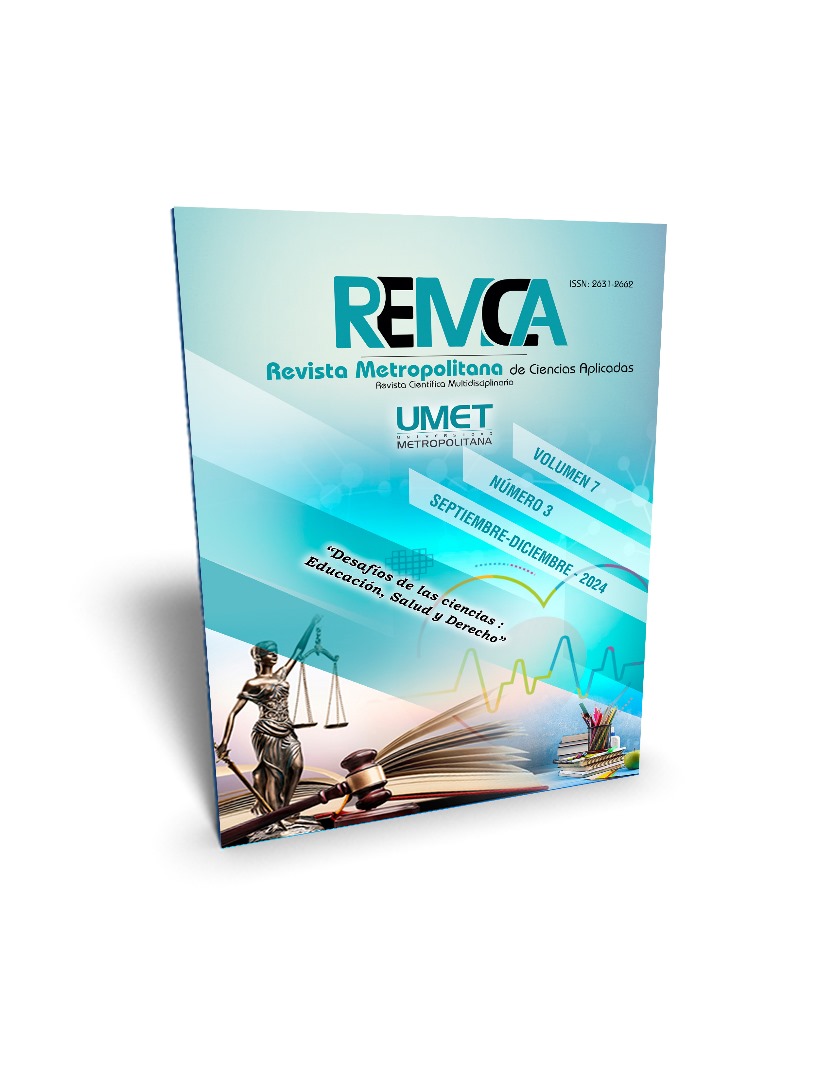Implementation of gamification in the learning of Natural Sciences concepts and its influence on student motivation
DOI:
https://doi.org/10.62452/2sfnxh53Keywords:
Strategy, acuiferas, learning, natural sciences, motivationAbstract
The general objective of the research was to evaluate the impact of gamification on the learning of Natural Sciences concepts and the motivation of ninth-grade students, comparing with a traditional teaching approach. Theoretical methods such as analytical-synthetic and inductive-deductive methods were used to analyze and synthesize information. Empirical methods include student surveys, pedagogical tests and specialist criteria. The research is declared quasi-experimental and descriptive, allowing groups to be compared and educational phenomena to be described. The gamified strategy was designed to address the contents of curricular block 4. The Earth and the Universe in ninth grade, guaranteeing the development of cognitive and scientific skills typical of the educational level. The results revealed that the group where gamification was applied showed better performance in all aspects evaluated. Students demonstrated a stronger understanding of Natural Sciences Curricular Block 4 concepts, an increase in class participation and collaboration, and greater interest in gamified learning activities. In addition, an increase in the ability to apply knowledge in practical situations was observed. These findings suggest that gamification can significantly improve the teaching-learning process in Natural Sciences, fostering a more stimulating and effective educational environment. It is recommended that educators consider integrating gamified strategies into their pedagogical practices to promote more meaningful and motivating learning in this area of knowledge.
Downloads
References
Aroca, M. T. (2021). La Enseñanza práctica de las Ciencias Naturales. BLOG Noticias Oposiciones y bolsas Trabajo Interinos. https://www.campuseducacion.com/blog/revista-digital-docente/la-ensenanza-practica-de-las-ciencias-naturales/
Atkinson, J. (1958). Motives in fantasy, action, and society. Van Nostrand.
Deci, E., & Ryan, R. (2000). La Teoría de la Autodeterminación y la Facilitación de la Motivación Intrínseca, el Desarrollo Social, y el Bienestar. American Psychologist, 55(1), 68-78. https://www.selfdeterminationtheory.org/SDT/documents/2000_RyanDeci_SpanishAmPsych.pdf
Ecuador. Ministerio de Educación. (2016). Ciencias Naturales, Biología, Física Y Química. https://educacion.gob.ec/wp-content/uploads/downloads/2016/03/Area-de-Ciencias-Naturales3.pdf
García, C., Martín-Peña, M. L., & Díaz-Garrido, E. (2019). Protocol: Gamify a Subject without Advanced Technology. WPOM-Working Papers on Operations Management, 10(2), 20-35. https://doi.org/10.4995/wpom.v10i2.12662
Jaramillo, L. M. (2019). Las ciencias naturales como un saber integrador. Sophía, 26, 199-221. https://doi.org/10.17163/soph.n26.2019.06
Manassero, M.-A., & Vázquez, Á. (2023). Enseñar y aprender a pensar sobre la naturaleza de la ciencia: Un juego de cartas como recurso en educación primaria. Revista Eureka sobre Enseñanza y Divulgación de las Ciencias, 20(2). https://doi.org/10.25267/Rev_Eureka_ensen_divulg_cienc.2023.v20.i2.2202
Martín, L., Amat, A., & Espinet, M. (2022). Aprender a diseñar juegos para la enseñanza de las ciencias en la formación inicial de maestras y maestros en educación primaria. Revista Eureka sobre Enseñanza y Divulgación de las Ciencias, 19(3), 1-20. https://doi.org/10.25267/Rev_Eureka_ensen_divulg_cienc.2022.v19.i3.3601
Naranjo, M. L. (2009). Motivación: Perspectivas teóricas y algunas consideraciones de su importancia en el ámbito educativo. Revista Educación, 33(2), 153. https://doi.org/10.15517/revedu.v33i2.510
Organización de las Naciones Unidas para la Educación, la Ciencia y la Cultura. (2016). Aportes para la enseñanza de las ciencias naturales. UNESCO. https://unesdoc.unesco.org/ark:/48223/pf0000244733
Prieto, J. M., Gómez-Torrijos, J. D., & Said, E. (2022). Gamificación, motivación y rendimiento en educación: Una revisión sistemática. Revista Electrónica Educare, 26(1), 1-23. https://doi.org/10.15359/ree.26-1.14
Valenzuela, M. Á. (2021). Gamificación para el aprendizaje. Revista Educación Las Américas, 11(1), 91-103. https://doi.org/10.35811/rea.v11i1.140
Vygotsky, L. (1978). Mind in society: Development of higher psychological processes. Harvard University Press.
Zambrano, A. P., Lucas, M. Á., Luque, K. E., & Lucas, A. T. (2020). La Gamificación: Herramientas innovadoras para promover el aprendizaje autorregulado. Dominio de las Ciencias, 6(Extra 3). https://dominiodelasciencias.com/ojs/index.php/es/article/view/1402
Downloads
Published
Issue
Section
License
Copyright (c) 2024 Maritza Del Rocío Zambrano-Vera, María Pamela Alcívar-Williams, Elizabeth Esther Vergel-Parejo (Autor/a)

This work is licensed under a Creative Commons Attribution-NonCommercial-ShareAlike 4.0 International License.
Authors who publish in Revista Metropolitana de Ciencias Aplicadas (REMCA), agree to the following terms:
1. Copyright
Authors retain unrestricted copyright to their work. Authors grant the journal the right of first publication. To this end, they assign the journal non-exclusive exploitation rights (reproduction, distribution, public communication, and transformation). Authors may enter into additional agreements for the non-exclusive distribution of the version of the work published in the journal, provided that acknowledgment of its initial publication in this journal is given.
© The authors.
2. License
The articles are published in the journal under the Creative Commons Attribution-NonCommercial-ShareAlike 4.0 International License (CC BY-NC-SA 4.0). The terms can be found at: https://creativecommons.org/licenses/by-nc-sa/4.0/deed.en
This license allows:
- Sharing: Copying and redistributing the material in any medium or format.
- Adapting: Remixing, transforming, and building upon the material.
Under the following terms:
- Attribution: You must give appropriate credit, provide a link to the license, and indicate if any changes were made. You may do this in any reasonable manner, but not in any way that suggests the licensor endorses or sponsors your use.
- NonCommercial: You may not use the material for commercial purposes.
- ShareAlike: If you remix, transform, or build upon the material, you must distribute your creation under the same license as the original work.
There are no additional restrictions. You may not apply legal terms or technological measures that legally restrict others from doing anything the license permits.




